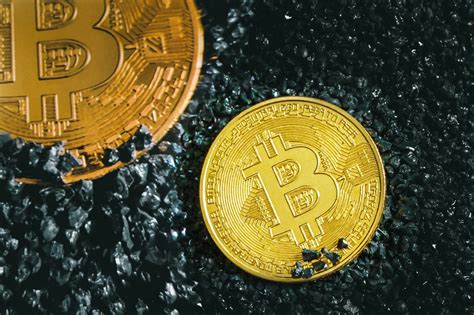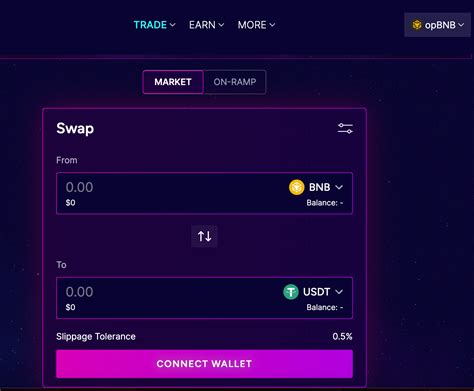Unveiling the World of Bitcoin Mining: A Comprehensive Guide

`markdown
Preview: Delve into the fascinating world of Bitcoin Mining! This guide explains what it is, how it works, its environmental impact, and everything else you need to know about securing the Bitcoin network and potentially earning rewards.
What is Bitcoin Mining?
Bitcoin mining is the process of verifying and adding new transaction records to Bitcoin's public ledger, known as the blockchain. Miners use powerful computers to solve complex cryptographic puzzles, a process that requires significant computational power. The first miner to solve the puzzle gets to add the next block of transactions to the blockchain and is rewarded with newly minted Bitcoin and transaction fees. This process is crucial for maintaining the security and integrity of the Bitcoin network.
How Does Bitcoin Mining Work?
The core of bitcoin mining lies in solving complex mathematical problems using specialized hardware. Here’s a breakdown:
- Transaction Verification: Miners collect recent Bitcoin transactions and bundle them into a potential block.
- Solving the Puzzle: Miners compete to find a hash (a unique fingerprint) for the block that meets specific criteria set by the Bitcoin protocol. This involves repeatedly changing a nonce (a number used only once) and recalculating the hash until a valid solution is found.
- Proof-of-Work: This process is called Proof-of-Work (PoW). The miner who finds the valid hash broadcasts it to the network.
- Block Validation: Other nodes on the network verify the solution. If valid, the block is added to the blockchain.
- Reward: The successful miner receives a reward, currently 6.25 Bitcoin per block, plus transaction fees from the transactions included in the block.
- GPUs (Graphics Processing Units): More powerful than CPUs but still less efficient than specialized hardware.
- FPGAs (Field-Programmable Gate Arrays): Offer better performance than GPUs but are more complex to program.
- Renewable Energy Solutions: Many miners are exploring and adopting renewable energy sources like solar, wind, and hydroelectric power to reduce their environmental impact.
- Hardware Costs: The initial investment in mining hardware can be significant.
- Electricity Costs: Electricity is a major ongoing expense.
- Mining Difficulty: As more miners join the network, the difficulty of finding a valid hash increases, reducing individual profitability.
- Mining Pool Fees: Many miners join mining pools to increase their chances of earning rewards. These pools charge fees.
- Shift to Renewable Energy: Increased adoption of renewable energy sources is crucial for sustainability.
- Innovation: Ongoing innovation in mining hardware and techniques could improve efficiency and reduce environmental impact.
- It involves solving complex cryptographic puzzles using specialized hardware.
- Energy consumption and environmental impact are significant concerns.
- Joining a mining pool can provide more consistent rewards.
Bitcoin Mining Hardware: From CPUs to ASICs
Early Bitcoin mining could be done using standard computer CPUs. However, as the network grew and the difficulty of the puzzles increased, more powerful hardware became necessary.
CPUs (Central Processing Units): Inefficient for modern Bitcoin mining* due to their low hash rate.
ASICs (Application-Specific Integrated Circuits): The current standard for Bitcoin mining*. ASICs are specifically designed for hashing algorithms and offer the highest hash rate and energy efficiency.
The Environmental Impact of Bitcoin Mining
The energy consumption of Bitcoin mining has become a significant concern. The process requires massive amounts of electricity, leading to a substantial carbon footprint, especially when powered by fossil fuels. However, efforts are being made to transition to renewable energy sources.
Energy Consumption Statistics: The Bitcoin* network's energy consumption is comparable to that of some small countries.
Debate and Criticism: The environmental impact of Bitcoin mining* remains a contentious topic, with critics arguing for more sustainable alternatives.
Is Bitcoin Mining Profitable?
Profitability in Bitcoin mining depends on several factors:
Bitcoin Price: The price of Bitcoin* directly impacts the value of the rewards earned.
Important Note: Bitcoin mining is a competitive and complex activity. Profitability is not guaranteed and requires careful planning and management.
Joining a Bitcoin Mining Pool
A mining pool is a group of miners who combine their computational resources to increase their chances of finding a block. When the pool finds a block, the reward is distributed among the participants based on their contribution to the pool's hash rate. Joining a pool can provide more consistent (though smaller) rewards compared to solo mining.
The Future of Bitcoin Mining
The future of bitcoin mining is uncertain but likely to evolve:
Algorithm Changes: Potential changes to the Bitcoin* algorithm, such as a move to Proof-of-Stake (PoS), could significantly impact the mining process.
Regulation: Government regulation of Bitcoin mining* activities is becoming increasingly likely.
Key Takeaways
Bitcoin mining is the process of verifying and adding new transactions to the Bitcoin* blockchain.
ASICs are the most efficient hardware for Bitcoin mining*.
Profitability depends on hardware costs, electricity costs, mining difficulty, and the price of Bitcoin*.
FAQ: Frequently Asked Questions About Bitcoin Mining
Q: What is the main purpose of Bitcoin mining?
A: The main purpose is to verify transactions and add new blocks to the Bitcoin blockchain, ensuring the security and integrity of the network.
Q: How much Bitcoin can I earn by mining?
A: The amount of Bitcoin you can earn depends on your hash rate, the current block reward, and the mining difficulty. Currently, the block reward is 6.25 Bitcoin.
Q: Is Bitcoin mining legal?
A: Bitcoin mining is legal in many countries, but regulations vary. It's essential to research the legal status in your jurisdiction.
Q: What is Proof-of-Work (PoW)?
A: Proof-of-Work is the consensus mechanism used by Bitcoin. Miners must solve complex cryptographic puzzles to validate transactions and add new blocks to the blockchain. This process requires significant computational power.
Q: What are the risks associated with Bitcoin mining?
A: Risks include high hardware and electricity costs, increasing mining difficulty, price volatility of Bitcoin, and potential regulatory changes.
Q: How do I start Bitcoin mining?
A: To start Bitcoin mining, you need to acquire mining hardware, join a mining pool (optional but recommended), set up your mining software, and configure your hardware. Research thoroughly before investing.
`




